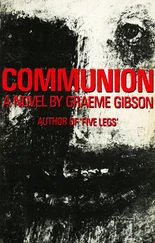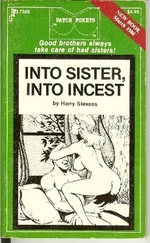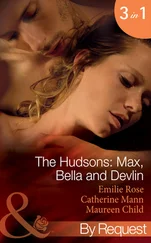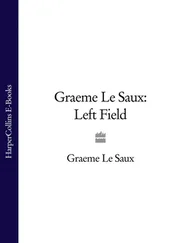Shuttered and barred against the world, the building felt as if it was in mourning. A deep sadness permeated the rooms. Jeniche feared it meant yet another death. She touched little, despite the worth of some of the items. This was the house of a friend. And of all the friends she had made, the strangest and the best.
She made up a small bed for herself in an upstairs room near the stairs to the roof. A straw mattress from the kitchen and spare sheets from a linen press, that was all she used. That and cool water drawn from the well for bathing before she ventured out at night for food, searching the streets and taverns, listening to the talk.
And every time she slept, her dreams of being trapped, of sour breath and rough, grasping hands, drove her to a restlessness that woke her. Sick with weariness and ever more uncertain about the life she had made for herself in Makamba, she would make her way up to the roof terrace and sit beneath the awning to listen to the city, wondering whether the dried blood she had found up there was that of the child.
A week passed and the mood in the city turned from bemusement to discontent and then to open anger. Firecracker sounds sparkled in the night, most often from the direction of the Old City, but sometimes up on the high ridge and over towards the wealthier quarters. Shouts and the sound of running feet echoed in the hot dark.
On that seventh day, risking a daylight foray, she found one of the stable hands.
‘Endek?’
His hand half way toward a piece of fruit on a market stall, he looked round, searching the crowds nearby. Jeniche flipped a sou at the stallholder and picked up the slice of melon.
Endek eyed her with suspicion as she handed him the fruit. The faint remains of bruising stained his left cheek. ‘Who are you, then?’
‘I’m looking for Trag. What happened?’
‘Trag? Didn’t know he had any friends.’
‘You don’t remember me from the stables? Never mind.’ She had always tried to remain unobtrusive. It was a hollow triumph. ‘What happened? I saw you all lined up outside the main gate.’
A brief frown, followed by memory. ‘Bastards. They just walked in. Odrin tried to stop them and got beaten for his trouble.’
‘You, too, by the look of it.’
‘Wasn’t going to let them do that,’ he said round a mouthful of melon. ‘Odrin’s a foul-tempered old piece of shit, but he gave me that job. So they beat me as well. Then they made us stand in the sun. Well, stupid goat arses. It’s not like we’re not used to it, working for the gentry.’ He wiped juice from his chin. ‘After that they told us to get lost. Using the horses for their soldiers.’
‘Trag?’
Endek shook his head. ‘No idea. I thought he might wade into them soldiers and pull their heads off. If you know him, you’ll know what he’s like about those horses. But he weren’t there. Gone. Best thing, I suppose. Us, they beat. They would’ve had to kill him to stop him.’
‘Any idea where he might have gone?’
‘Hasn’t he got an old aunt? Down near Northgate.’ He shrugged and wandered off, sucking at the rind.
Jeniche pushed her way through the crowds and into an alley cool with shadow. She spent a hot afternoon following fruitless rumours and trying to pick sense out of gossip. But Trag, for all his bulk and slow ways, seemed to have disappeared as easily and completely as a dust ghost.
Wondering if she should start visiting the cemeteries to talk with grave diggers, she trudged back up the steep slope from Northgate. People were coming back out after the heat of the day. Soldiers were standing on street corners in whatever shade they could find, watching for signs of trouble.
To avoid getting too close to a group of four who looked bored and restless, Jeniche crossed the street. She need not have bothered as their attention was taken by two men who began a fierce argument. Continuing across, she kept a wary eye on a handcart laden with building materials that was being brought down the hill by a group of men. The wheels rumbled on the baked earth and the whole thing creaked.
It came as little surprise when the sound of the wheels changed, although it was odd no one shouted a warning. With sudden, stark clarity she realized why and looked for an escape route.
Before she could move, the cart had picked up deadly speed. The soldiers noticed the change in sound, turned, and leapt for their lives. One was too late. He was pinned against the wall and crushed to death. Another spun through the air and fell to the ground, scrabbling feebly to get out of the open. The other two ran into the middle of the street, shouting. They pulled their moskets from where they hung on straps on their shoulders and raised them like crossbows.
Jeniche watched from an alley and jumped at the loud firecracker sound the weapons made. One of the men who had let go of the cart was struggling up the hill, looking for cover, when his head exploded. Jeniche stared, unable to make sense of the horror she had seen.
More soldiers appeared and there were more loud sounds, crackling up and down the street. A boy ran down the hill past Jeniche, his face full of numb fear, a dark bloody patch blossoming on his tunic. She heard him stumble and fall. A woman began screaming.
That night, she sat with her back to the parapet at the rear of the roof terrace well away from the street, close to the bed beneath the awning. Hot tears ran down her cheeks as she recalled the first time she had climbed to this roof, resting triumphant after relieving an odious merchant of a boxful of money.
As she had sat on the corner, she had become aware of eyes watching her from the bed. A young girl, small and frail, quite unafraid. Her name was Enshool – ‘But you may call me Shooly,’ she had said – and then gone on to tell Jeniche that she could only come up to the roof if the queen gave permission.
Bemused, Jeniche had asked how that might be done and was introduced to the finest doll she had ever seen, exquisitely carved and richly dressed, along with a whole court of smaller dolls. A gift was required in payment for permission to visit.
It would have been easy to steal a doll, or buy one with stolen money, but Jeniche had found herself a job at the docks. Filling a cart over and over with animal dung had not paid well, a few coins and many blisters, but the gift had no taint.
‘What’s a Bir…?’ Shooly faltered at the unfamiliar word.
‘Birba.’
‘What’s a Birba? And why are his clothes on backwards?’
‘A Birba is meant to dress like that. He’s a jester. Someone who makes jokes and dances and does magic tricks.’ And Jeniche had capered round Shooly’s bed and produced a coin from her tiny ear and made her giggle. After that, Jeniche had visited on a regular basis. Shooly wasn’t always there, but when she was and when she was awake they would play with the dolls and Jeniche would be the jester.
There was no sign of Shooly now, or her family, just chunks knocked out of the parapet overlooking the street, a bloodstain, and one old rag doll pushed down behind a large chest. Teague was dead. Trag could not be found. There was nothing left for her here; only one road to be taken, the one that led away from her beloved city. It was time to move on. She sat in the shuttered room of her misery, locked her arms round her knees and stared into the deep dark.
The queue at the Watergate was shorter than the others. Not many people wanted to go south. And who could blame them when the fields alongside the main road in that direction were an armed encampment for as far as the eye could see. Even so, it was longer than it had been two days ago. And now, there was a high wooden palisade to prevent those who went down to the springs to collect water from using that as an escape route.
Читать дальше












